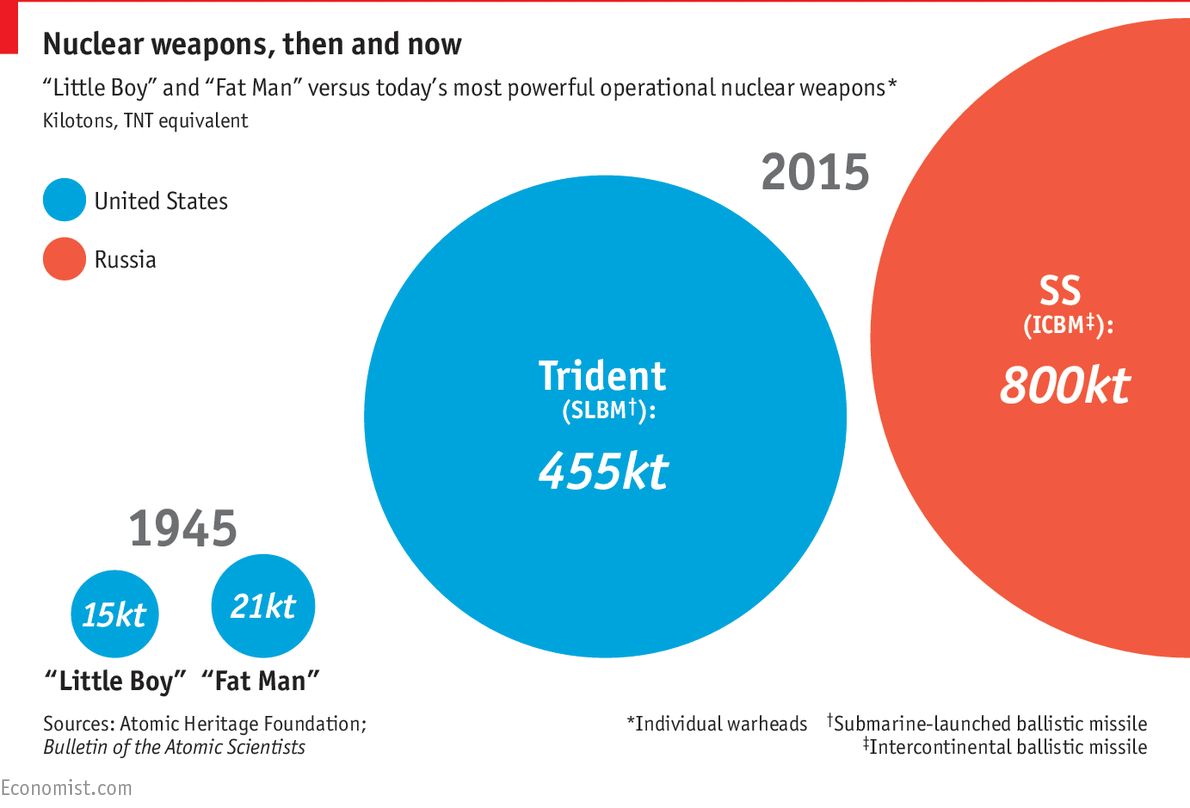Take a look at the following data:
 |
| Source |
Every one of those is way more powerful than the relatively tiny bombs ("Little Boy" and "Fat Man") that the US dropped in Hiroshima and Nagasaki, and the world has almost 16,000 of them!
Seriously, how many of those weapons do we need?
 |
| The bombing of Nagasaki; image source |
In this op-ed titled "Nagasaki, the Forgotten City," the author writes:
About 74,000 people in Nagasaki died instantaneously or within five months of the bombing. Only 150 were military personnel. Another 75,000 people were injured, and these numbers do not count those who fell ill and died from radiation-related conditions in the decades to come.
Initially, purple spots appeared on their bodies, their hair fell out, and they developed high fevers, infections, and swollen and bleeding gums. Later, cancer rates surged. The survivors, known as hibakusha, lived in constant fear of illness and death.
To counter growing criticism of the bombings, American leaders established a narrative that the bombings had ended the war and saved up to 1 million American lives by preventing an invasion of Japan. (These postwar casualty estimates were far higher than pre-bomb calculations.) Most Americans accepted this narrative.
Immediately after the bombings, high-level U.S. officials publicly — and adamantly — rebuffed news reports about the bombs' horrific aftereffects. Gen. Leslie Groves, director of the Manhattan Project, which developed the atomic bombs, dismissed these reports as propaganda, even as he sent teams to measure radiation levels to ensure the safety of U.S. troops about to enter both cities. Later that year, Groves testified before the U.S. Senate that death from high-dose radiation exposure is "without undue suffering" and "a very pleasant way to die."
We knew the world would not be the same. A few people laughed, a few people cried, most people were silent. I remembered the line from the Hindu scripture, the Bhagavad-Gita. Vishnu is trying to persuade the Prince that he should do his duty and to impress him takes on his multi-armed form and says, "Now, I am become Death, the destroyer of worlds." I suppose we all thought that one way or another.





